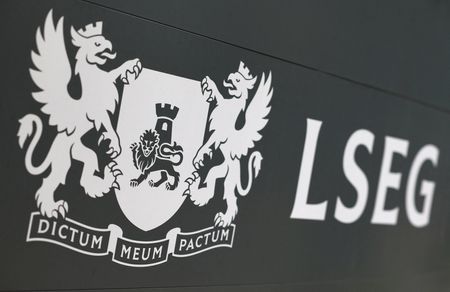By Cheryl Lu-Lien Tan
NEW YORK (Reuters) – The world may have spun differently in the past two years, but Rich Kramer, CEO of the Goodyear Tire and Rubber Company, is rolling with those changes.
“We launched even more products than we did before, and we did it all remotely,” said Kramer, who was named CEO in 2010 and is the second-longest serving CEO in the Akron, Ohio company’s 123-year history. “If you would have told me that we could have done that in 2019, I would say, ‘You’re nuts; it’s not possible,’ but we did it.”
Yet there is only so much the company can achieve with everyone working remotely.
“We have to come back together at least in part to be able to collaborate face-to-face, to whiteboard things, to look at somebody’s body language and say, ‘You don’t agree with me’ or to hear a great idea and that triggers another great idea,” Kramer explains. “You can maintain a culture through screens, but it’s really hard to advance a culture through screens.”
Kramer spoke with Reuters about recent lessons and his thoughts on the future of the automotive industry. Edited excerpts are below.
Q. What was your first job?
A. My first job was in a metal fabrication factory in a suburb of Cleveland. I was maybe 18. That was my first job apart from cutting grass.
I learned about hard work and an appreciation for it. It gives you an appreciation for what people do every day to make the world go around.
Q. How did Goodyear pivot during the pandemic?
A. Our job is to make the tire-buying process easier for consumers. We had a new beta (Roll By Goodyear) in two test markets: places in shopping centers where you could come, leave your car and have tires put on it while you shop. We also tried a mobile van service where we put tires on for you.
What it is teaching consumers is that there’s a different way to buy tires. It’s not just about standing in line.
Once you find something that’s easy and you know is available that will be something that people will pursue. If we can come to your house and put tires on for you, you may not want to go back to the old way.
Q. Could you talk about some of your recent innovations?
A. Sustainability is a priority, including the replacement of petrochemicals in our tires. Also, the thing we can do right now to have a big impact on our environment is focus on tire inflation.
Most tires actually drive around with low (tire pressure) inflation. We estimate that you could drive more miles on a tank of gas if you had your tires inflated. We waste millions of miles of gas a year because of tire inflation.
We are also really transforming our products to be intelligent and integrated tires. We’re measuring temperature and air pressure, load and wear plus friction.
We take this data, and we can factor it into automated vehicle driving systems so that the tire data or road data improves the safety and performance of that vehicle.
Think about when you’re on a wet road, going around a corner and your tires are worn. Your car may start to slide. What do you do? In the (autonomous vehicle) world, what we can do is give that information to the vehicle to help the vehicle handle differently, maybe stop it 30% faster.
Q. What job advice do you often give?
A. Humility and ambition. I think about those two things. On the humility side, always think about what you don’t know. Experience can be your best teacher. Listen and don’t come in thinking you know all the answers.
Also, just be excellent at what you’re doing at the moment, and do your job better than anyone else. Do part of your boss’ job, if you can. If you do that with humility, that is your best advocate to have people give you future opportunities.
Q. What does resilience mean to you?
A. Resilience is really all about failure and then trying to go from there. You learn more from failure than you learn from success.
When you’re down and you have to embrace the failure, only then can you really get to the true creativity to pick yourself up and move again.
That becomes the pathway to new solutions and creative ideas. If you fail and you stop, you’ll never break through and succeed.
(Editing by Lauren Young and Cynthia Osterman)











